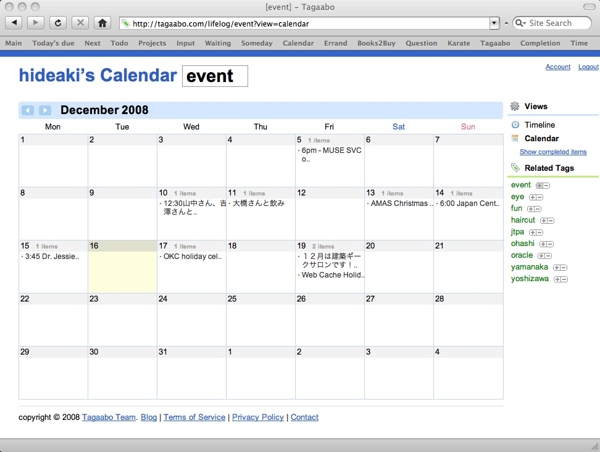Almost all of the administrative tasks that I need to do there, such as submitting vacation days or joining a mailing list, are done through web applications. This is pretty typical of most offices these days.
The problem that I have with all of these web applications is that just learning how to use them inevitably takes up time, and there are so many different ones.
As a result, I end up spending a frustratingly huge amount of time figuring out all of the different applications.
As a result, I end up spending a frustratingly huge amount of time figuring out all of the different applications.
And most of the time, once I've finally figured out how to use an application, I don't end up using it again for a long time. But of course when I do need to use it again, I've already forgotton how! (And in many cases, I don't even remember the url of the system.) Then I have to figure out the interface of the system all over again.
However, as you may have guessed, I have devised a way to use Taggabo to help me with this problem. Once I figure out how to use a system, I write in and log it in Tagaabo, with relevant tags.
For example, let's say that today I figured out how to join a mailing list. I write a quick description of the steps in Tagaabo and tag it with "mailing_list". Six months later when I need to join another mailing list and can't for the life of me remember how, I just type 'ma' in the search box of Tagaabo and I see that there is a "mailing_list" tag. When I select it I now have all the information I need to quickly and efficiently join a company mailing list.
The same technique can be applied when you are learning anything.
Nowadays, our complex modern lives require us to learn so many different things.
Even if I've learned something new and feel that I understand it, if I don't think about it for a while or am busy doing something else, that knowledge can be difficult to pull recall. Tagaabo has been really helpful to me in these cases. I just type a related tag name in the search box and find memos that I have made for myself back when I first learned something. Even if it is just a short, tossed off note, the fact that I wrote it makes it easier for me to understand. It's much easier than deciphering the jargon of books or manuals.
So get in the habit of recording the new things that you learn, and you'll be ahead of the curve.






